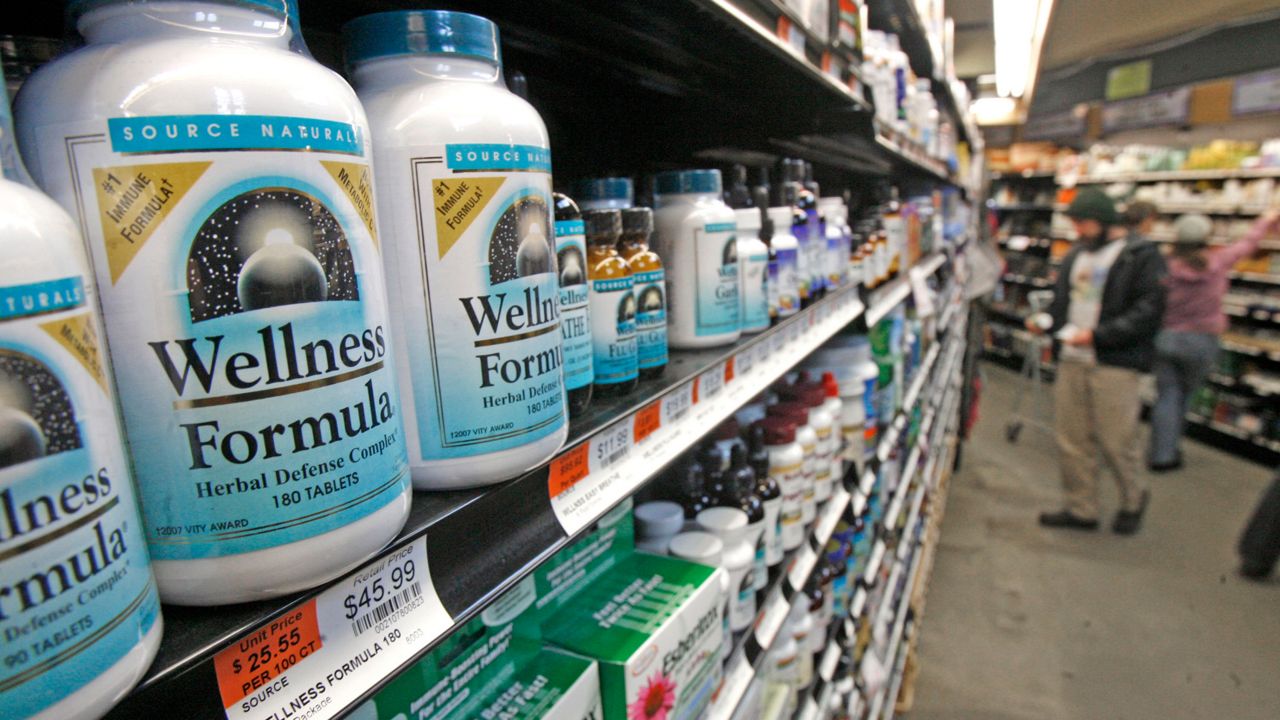Dietary supplements are big business. Protein powder advertisements are splashed across the internet in highly produced videos promoted by muscled giants. There are pills with fish oil, or vitamin B, or vitamin C or all manner of other things. All told, the market is roughly $120 billion in the United States.
Mahtab Jafari’s book, “The Truth About Dietary Supplements: An Evidence-Based Guide to a Safe Medicine Cabinet,” acts as a guide. Jafari’s objective is to help her audience understand when to take supplements and how to select the right ones.
A professor of pharmaceutical sciences and director of the University of California, Irvine Center for Healthspan Sciences, Jafari’s broad experience is laid forth for the general reader.
Her chief warning is that good information is hard to come by.
“The main issue is this industry is not regulated,” she said.
Social media influencers have found audiences through content creation on Instagram and YouTube. Cursory searches quickly call up scores of videos of vein-covered bodybuilders dumping all kinds of shakes and powders down their throats.
Federal legislation in the 1990s opened up the supplement business as a low barrier to the entry market. The documentary film “Bigger, Stronger, Faster” demonstrates the ease with which an average person can create a protein powder from scratch.
“After 1994, the floodgates were completely open. You and I can make a supplement and put it on the market,” Jafari said.
Protein shakes and powders are a subcategory of the overall market and among the most conspicuously marketed. Some of these products promise miraculous results.
There are pre-work powders, pre-workout shakes, recovery powders, protein powders and so on. The dietary supplement market is as broad as it is unregulated, Jafari said, with many protein powders opting for the murky description “proprietary blend” in lieu of an ingredient list.
“We don’t know what are in these blends,” Jafari said. “You’re not required to tell me how many milligrams of caffeine or Guarana are in this blend because it’s proprietary.”
She stresses that these should be avoided.
Sometimes, contamination is a factor. Jafari said there’s no way to know what other recipes may have been mixed in the same equipment and whether it was sanitized before a different blend was made.
But these products continue to sell, and new businesses are finding their way into the dietary supplement market.
Makers of video game equipment and other powdered drink makers have invested in products for competitive gamers. Companies like G Fuel and Rogue Energy have staked out territory. These drinks prioritize caffeine and ingredients with nootropic properties to keep gamers alert and mentally focused.
Dietary supplements have broad business appeal. They often have long shelf lives and can be cheap to produce. Jafari always returns to her most basic rule: whether the supplement is filling a dietary need. Most people aren’t sure what they need, she said, without bloodwork and other evaluations done by a physician. Some people may be deficient in vitamin D or Omega 3. Some people may need a supplement, but many may be able to meet their dietary needs by making different selections at the grocery store.
Jafari said even natural supplements, like sleep aid valerian root, can be overused.
For some people, dietary supplements are a necessary part of healthy living. She suggests searching supplements on the Food and Drug Administration website or consulting a physician. But the lack of regulation, she said, puts a large burden on the consumer, who needs to learn to ask the right questions and spot an inferior product. She calls it “taking a magnifying glass” to see if a particular product is of satisfactory quality. Even then, the dietary objective may be just as easily achieved through a change in food choices.
Whatever the approach, she stresses, care is needed.
“Dietary supplements are such a gray area,” she said. “You have to be careful.”










)